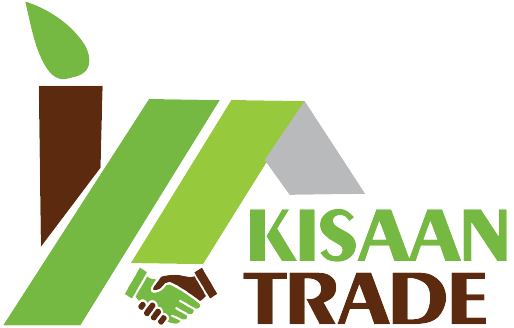Paths to Success in B2B Business - Market Strategies

Business-to-business (B2B) refers to a type of commerce where transactions occur between two businesses rather than between a business and individual consumers. In the B2B business model, companies engage in buying and selling goods, services or information with other companies as their primary customers. These transactions can involve a wide range of products and services, such as raw materials, finished goods, software solutions, consulting services and more.
B2B interactions often involve larger volumes, longer sales cycles, and complex negotiations than business-to-consumer (B2C) transactions. Relationships formed in B2B transactions are typically characterized by the need for tailored solutions, ongoing partnerships, and a focus on meeting the specific needs and requirements of business customers. B2B transactions can occur through a variety of channels, including direct sales, online platforms, and industry-specific marketplaces. The B2B sector is a vital component of the global economy, driving innovation, efficiency, and collaboration across industries.
In the ever-evolving landscape of business-to-business (B2B) business, success depends on a delicate balance of strategy, technology, and adaptability. B2B marketplaces have emerged as powerful platforms that facilitate transactions and connections between businesses, reshaping the way commerce is conducted. To achieve success in B2B business, it is important for businesses to master the intricacies of market strategies. This article will explore the dynamics of B2B business, the role of B2B marketplaces, and provide insight into effective marketplace strategies that can lead businesses to success.
The Transformative Nature of B2B Business
B2B business has undergone profound changes in recent years, largely due to technological advancements and changing customer expectations. Gone are the days when B2B transactions were primarily conducted through traditional methods like phone calls, faxes and face-to-face meetings. The digital revolution has disrupted the B2B landscape, opening up new opportunities and challenges for businesses.
Key Drivers of Change
Several key factors have driven the transformation of B2B business:
Digitization: The widespread adoption of the Internet and digital technologies has enabled businesses to connect and transact with greater ease and efficiency. This digitalization has lowered the barriers to entry for businesses of all sizes.
Changing Customer Expectations: B2B buyers, influenced by their B2C experiences, now demand seamless online experiences, personalized services and faster delivery times. Meeting these expectations is critical to B2B success.
Data and Analytics: The availability of large amounts of data and advanced analytics tools enables businesses to make data-driven decisions, optimize operations, and better understand their customers.
Globalization: The ease of international trade has expanded market opportunities for B2B businesses, but it has also introduced complexities related to cross-border transactions, regulations, and cultural differences.
Marketplace Ecosystem: B2B marketplaces, both general and niche, have emerged as important components of the B2B landscape. These platforms connect buyers and sellers, offering myriad opportunities and challenges.
The Rise of B2B Marketplaces
B2B marketplaces have emerged as an essential link in the transformation of B2B business. These online platforms act as intermediaries that connect businesses wishing to buy and sell products or services. They offer several benefits that are reshaping the B2B landscape:
1. Wider Reach and Exposure
B2B marketplaces provide businesses with a huge audience, often on a global scale. This means more exposure for products and services, which can lead to increased sales opportunities.
2. Streamlined Transactions
Markets streamline the buying and selling process, making it easier for businesses to transact. They typically provide tools for catalog management, payment processing, and order tracking, simplifying complex B2B transactions.
3. Reduction in Marketing Costs
Traditional B2B marketing can be expensive and time-consuming. B2B marketplaces provide a cost-effective way to reach potential customers, as they attract businesses already looking for products and services.
4. Advanced Search and Search
B2B marketplaces leverage advanced search algorithms and taxonomy to help buyers find relevant products and services. This makes it easier for businesses to find what they need.
5. Better Trust and Transparency
Marketplaces regularly implement trust-building mechanisms such as ratings, reviews and verification processes, which increase transparency and promote trust among users.
6. Data-Driven Insights
Most B2B marketplaces provide data and analytics tools that help businesses understand market trends, customer behavior, and performance metrics. This data-driven approach allows for continuous optimization.
Effective Marketing Strategies for B2B Success
To achieve success in B2B trade, businesses must not only recognize the importance of B2B marketplaces, but also create effective strategies to leverage these platforms. Here are some essential marketing strategies that can lead businesses to success:
1. Choose The Right Market
Not all B2B markets are created equal. It is essential to choose a market that aligns with your business goals, target audience, and industry. Consider factors such as the reputation of the marketplace, the size of its user base, and the level of competition.
2. Customize Product List
In a crowded marketplace, standing out is paramount. Invest time and effort in creating an attractive product listing that offers detailed information, high-quality images, and clear pricing. Use keywords strategically to increase SEO Every visibility.
3. Enforce Competitive Pricing
Pricing is an important factor in B2B business. Research the pricing strategies of your competitors in the market and adjust your pricing accordingly. Be transparent about pricing and any additional fees.
4. Build Strong Relationships
Successful B2B business is not just about transactions; It's about building relationships. Connect with your customers, respond quickly to inquiries and provide excellent customer service. Building trust can lead to long-term partnerships.
5. Take Advantage of Analytics
The data generated by B2B marketplaces is a gold mine for businesses. Analyze customer behavior, track the performance of your listings, and identify areas of improvement. Use these insights to refine your strategy.
6. Diversify and Expand
Don't rely on a single marketplace for all your B2B business. Diversify your presence on multiple platforms to reach a wider audience. This reduces the risk associated with dependence on a single channel.
7. Embrace Technology
Stay up to date with the latest B2B e-commerce technologies, including payment gateways, inventory management systems, and customer relationship management (CRM) tools. Integrating these technologies can streamline your operations.
8. Be Obedient
B2B trade often involves complex regulatory requirements, especially in international transactions. Make sure your business complies with all relevant laws, tariffs, and trade agreements to avoid legal issues.
9. Adaptation and Innovation
The B2B landscape is constantly evolving. Be agile and ready to adapt to changes in technology, customer preferences and market conditions. Innovation is the key to long-term success.
10. Monitor and Evaluate
Regularly evaluate the performance of your market strategies. Use key performance indicators (KPIs) to measure success and make data-driven adjustments to your approach.
11. Collaborate and Network
B2B marketplaces are not just transactional platforms; They are also hubs for networking and collaboration. Connect with other businesses, attend industry events and find partnerships that can help you grow.
Real World Success Stories
To illustrate the impact of effective market strategies, let's look at some real-world case studies:
A. Kisaan Trade
Kisaan Trade is a B2B trade marketplace that connects agri-businesses with potential buyers. The platform facilitates secure and convenient online transactions, providing access to a wide range of high quality agricultural products from India. Kisaan Trade aims to streamline the B2B trade process and enable small-scale farmers to expand their reach. The marketplace is designed to be user-friendly and accessible, making it an attractive option for businesses and farmers. You can easily find and buy the products you need with just a few clicks on Kisan Trade.
B. Alibaba
Alibaba, often called the “Amazon of China,” is a B2B marketplace that has demonstrated remarkable success. Their market strategy includes a strong focus on connecting global businesses with suppliers in China. They have invested heavily in trust-building mechanisms, ensuring that buyers and sellers can have confidence in their transactions. Alibaba's success is a testament to the power of a well-executed B2B marketplace strategy.
C. Amazon Business
Amazon Business, an extension of Amazon, is another prime example. With its huge customer base and strong e-commerce infrastructure, Amazon Business leverages its strengths to provide a streamlined B2B marketplace experience. They offer features like bulk purchasing, business pricing, and easy re-ordering, meeting the specific needs of B2B buyers. Amazon Business shows how established e-commerce giants can successfully move into the B2B arena.
Challenges and Future Trends
While B2B marketplaces offer immense opportunities, they also come with their fair share of challenges. To effectively deal with these challenges, it is important to be aware of:
1. Increase in Competition
As more businesses enter B2B markets, competition intensifies. Staying competitive requires constant adaptation and innovation.
2. Data Security and Privacy
B2B transactions involve sensitive business data. Ensuring the security and privacy of this data is paramount, especially with the increasing frequency of cyberattacks.
3. Fragmentation
The B2B marketplace landscape is fragmented, with multiple platforms serving specific industries or sectors. Businesses must decide how to allocate their resources across these platforms.
4. Regulatory Changes
International trade is subject to emerging regulations and trade policies. It is important to be aware of these changes and comply with them.
5. Customer Experience
B2B buyers have high expectations from the online shopping experience. Meeting these expectations requires user-friendly interfaces and exceptional customer service.
Looking ahead, several trends are likely to shape the future of B2B marketplaces:
1. AI and Machine Learning
The integration of AI and machine learning will enhance product recommendations, streamline processes, and improve customer service.
2. Blockchain Technology
Blockchain has the potential to increase transparency and security in B2B transactions, reducing fraud and disputes.
3. Personalization
B2B marketplaces will increasingly provide personalized experiences to meet the specific needs and preferences of individual businesses.
4. Sustainability and Ethics
More B2B buyers are prioritizing sustainability and ethical business practices. Markets that promote these values will gain a competitive edge.
5. Augmented and Virtual Reality
These technologies will play a role in product visualization and remote product inspection, especially in industries like manufacturing.
Conclusion
Achieving success in B2B business through go to market strategies is a journey that demands adaptability, innovation and a deep understanding of the emerging landscape. B2B marketplaces have become the cornerstone of modern B2B business, providing businesses with unparalleled opportunities for growth and efficiency. By adopting the strategies outlined in this article, learning from successful case studies, and keeping up with industry challenges and trends, businesses can set themselves up for long-term success in the dynamic world of B2B commerce. It's not just about transactions; It is about transforming the way B2B business is conducted and experienced, ensuring businesses thrive in the digital age.








